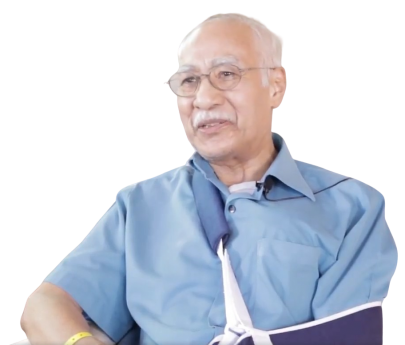Orthopedic Surgery

Orthopedic Surgery
- Procedure
- Orthopedic Surgery
The musculoskeletal system comprises the framework of the body and the mechanics that make it function. While orthopedics focuses on this system specifically, the reality is that just about every medical specialty has some overlap with this specialty.
While some orthopedic surgeons undergo additional training to perform specialized types of surgeries, orthopedic surgeons in general spend the majority of their time treating patients outside of the operating room. Most orthopedic specialists have a busy office-based practice. Orthopedic surgeons can also be found working in the emergency room, taking care of patients in hospital wards, or even on the sidelines of sporting events.
It takes around 10 years of schooling and training post-college to become an orthopedic surgeon, but it’s a highly in-demand specialty. And even after more than a decade of training, many surgeons further sub-specialize within orthopedics.

Procedure Primary Points
- Orthopedic conditions are a common reason for seeking medical care, but not all patients see orthopedic specialists.
- Around one-third of people in the US have musculoskeletal disorders, and the number is increasing.
- Orthopedic treatments and surgeries are highly successful and effective.
- Various issues fall under orthopedics, including osteoarthritis, carpal tunnel syndrome, torn meniscus, bursitis, and hip fractures.
- Educating yourself, finding a knowledgeable specialist, and maintaining overall health are crucial for managing orthopedic conditions effectively.
Related Conditions
Orthopedic conditions are the most common reason people seek medical care, although not every patient with an orthopedic condition is seen by an orthopedic specialist.
About a third of people in the U.S. have some type of musculoskeletal disorder, and that number is rising.1
The good news is that most of these conditions are treatable. In fact, some of the most successful medical treatments and surgical procedures are orthopedic.
Some of the many issues that fall under the umbrella of orthopedics include:
- Osteoarthritis
- Carpal tunnel syndrome
- Torn meniscus
- Bursitis
- Hip fracture
- Back and neck pain
Your Orthopedic Diagnosis
Not every person with shoulder pain has a rotator cuff tear, and not everyone with back pain has a muscle strain. While these problems may be among the most common causes of discomfort, if your condition is something else, the treatment may change.
Step number one is to find an orthopedic specialist who can help diagnose the cause of your specific problem and steer your treatment in the right direction.
Taking Control of Your Treatment
The best way to manage your treatment is to educate yourself about the condition that is causing your symptoms. Many musculoskeletal conditions can be improved with proper conditioning and rehabilitation, but you have to learn the right things to do for therapy.
Empowering yourself with this knowledge can make a big difference in your recovery.
Co-Occurring Conditions
Many common health problems make the management of orthopedic conditions much more difficult. Weight gain places tremendous stress on joints, and injured or worn-out joints almost always feel worse in heavier people. Smoking slows bone healing and can make recovery from treatment less successful and take longer.2
Maintaining your health can truly make the management of orthopedic problems much easier.
Living With an Orthopedic Problem
While many orthopedic conditions can be treated and cured, some people have lifelong diagnoses. One of the most challenging aspects of managing an orthopedic condition is staying fit and healthy while you have a musculoskeletal issue. Exercise may be difficult and painful for people suffering from bone and joint problems.
On a positive note, there are many ways to modify activity and new activities you can try that may not place as much stress on an injured joint, allowing you to remain active and fit. Remember, orthopedic conditions are almost always best managed by keeping a normal body weight and maintaining strong musculature.3 There are exercises that you can perform even with painful joints.
Questions You Should Ask Your Healthcare Provider
Always feel encouraged to ask questions of your orthopedic surgeon. In fact, if he or she doesn’t have time for your questions, that may be a sign you need to find a different healthcare provider.
The best way to ensure you get all of your questions answered is to write them down and bring them with you to your appointment. Make sure you also write down or record the answers your healthcare provider gives you for future reference.
Another helpful way to ensure all of your questions are addressed is to have a health advocate. This may be a family member or a close friend, or it may be a professional social worker, but it should be someone who can come with you to appointments and help speak on your behalf. Often the anxiety of treatment or surgery can cloud your thinking. Having someone go with you to appointments can help ensure there are no loose ends.
A Word From Verywell
Being diagnosed with an orthopedic condition can be overwhelming. However, most orthopedic conditions have effective treatments, and many people find complete resolution of their symptoms when they take the proper steps. Many orthopedic conditions, even if they come on abruptly, are the result of long-developing problems in the way we use our bodies. Successful treatment may take some time and effort, but the investment is worth it.
Ref : Link Very Well Health













